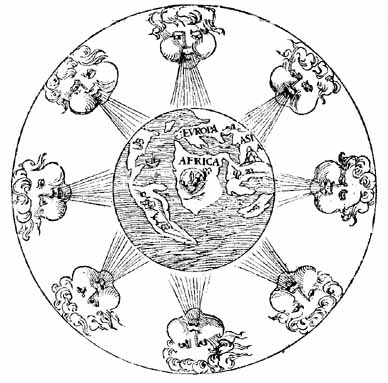CFP: "Imperial Sites of Memory" - University of St. Andrews (Scotland, UK), 2-3 September 2011 - Deadline: March 15, 2011
Imperial Sites of Memory
Call for Papers
A conference to be held at the University of St Andrews
Friday, 2 September 2011 - Saturday, 3 September 2011
In the wake of the Industrial Revolution several metropolitan powers began projecting their scientific, cultural, religious, commercial, geopolitical and military interests into what they perceived as a colonial periphery beyond Europe. The commemoration of numerous salient experiences associated with this myriad-faced phenomenon emerged as one of the hallmarks of the political culture of the nineteenth and twentieth centuries. Memory, crystallised in discrete Sites of Memory or Lieux de Mémoire (Pierre Nora), became a prominent part of narratives that were constructed to generate support for political aims and certain cultural practices (but sometimes ended up inviting dissent). It also helped to form rituals and a rhetoric that sought to exalt the particular calling and distinctiveness of individual nations (yet frequently reflected a shared, transnational pattern).
As Imperial Sites of Memory inevitably arose from situations of encounter between metropolitan agents and individuals, groups on the one hand and societies indigenous to the areas targeted by imperial expansion on the other, the memory with which they are bound up was often bifurcated. Investigating these sites will therefore involve questions of their symmetry and asymmetry, of how they were constructed amongst the colonisers and the colonised and of their different effects and durations on both sides of the imperial relationship.
The exploration of imperial Lieux de Mémoire can draw on the sophisticated methodologies established by the historical analysis of national memory, identity and political culture. It can also profitably be linked with the research agendas of transnational history which has so far tended to neglect questions of imperial identities and commemoration.
The proposed conference at St Andrews will examine and compare different categories of imperial commemorations that persisted in and across various metropolitan powers. It will also be mindful of their perception and construction amongst colonised societies.
A follow-up conference (to take place in Bonn in 2012) will build on the work done at St Andrews and assess the functions and importance of these Sites of Memory for the national and transnational identities and political cultures of the groups, states and societies concerned.
These conferences will be organised through a co-operation between the Centre for Transnational History (http://www.st-andrews.ac.uk/transnat/) at the University of St Andrews (represented by Dr Frank Lorenz Müller) and the Chair of Modern History (Prof. Dominik Geppert) at the University of Bonn (http://www.igw.uni-bonn.de/igw/-1/neuzeit/lehrstuhl-prof-dr-geppert).
For the first conference the organisers are now inviting papers falling into the following categories of Imperial Sites of Memory:
• Locations – Possible topics for this category might include sites of imperial battles that were commemorated as founding myths of empires (e.g. Plassey); scenes of colonial massacres (such as Gök Tepe or Amritsar); localities of incidents that marked the climax of territorial disputes or were used to denominate imperial syndromes (like Fashoda); strategic military locations which have become synonymous with imperial conflicts (the Khyber Pass); scenes of multinational imperial interventions (such as Peking during the Boxer Rising); etc.
• Heroes and Villains – Possible topics for this category might include adventurers or explorers (such as Carl Peters, Gustav Nachtigall or Emin Pasha); charismatic missionaries and philanthropists (such as Albert Schweitzer or David Livingstone); military heroes (such as Paul v. Lettow-Vorbeck, T.E. Lawrence, General Gordon or Captain Marchand); leaders of anti-imperial resistance movements (such as Imam Shamil); colonial administrators (such as Hermann von Wissmann); colonial rulers who were closely identified with colonial projects (such as King Leopold II.); etc.
• Institutions and Agencies – Possible topics for this category might include military formations (such as the French Foreign Legion, the German “Schutztruppe”, or the Askari soldiers); imperial infrastructure projects (such as the Indian Railways); administrative institutions (like the Colonial Civil Service or the Indian Civil Service); academic programmes (such as the Rhodes Scholarships); Missionary Societies; Published Opinions; Popular or Children's Literature; Maps, Atlases & Schoolbooks; the various East India Companies, museums, business organisations (such as oil companies or shipping lines); etc.
• Trauma, Defeat and Loss – Possible topics for this category might include sites of European military defeats (such as Adwa or Dien Bien Phu); crushed colonial uprisings (such as the Indian ‘Mutiny’ of 1857 or the Mau Mau uprising in Kenya); imperial wars (such as the Boer War, Algeria, the war against the Herero and Nama); mysterious events that gave rise to subsequent myth-making (such as the sinking of “USS Maine”); violent acts of expulsion or resettlement (such as the forced migration of the Crimean Tatars); etc.
Proposals of 200-300 words (for 20 min papers) together with a two-page CV may be sent by email to Frank Lorenz Müller (flm3@st-andrews.ac.uk). The deadline for proposals is 15 March 2011.

